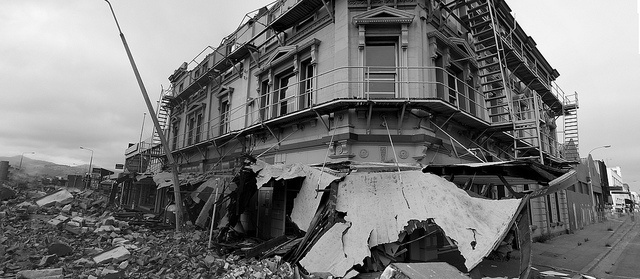By Carol Pierson HoldingIn response to pressure from students, faculty — and apparently alumni — who oppose Harvard Endowment’s refusal to divest its fossil fuel stocks, Harvard University’s President Drew Faust’s office issued her second statement on climate change and sent a an email link to Harvard alumni. (N.B.: I am one). Instead of divesting, Harvard will become a signatory to the UN Principles of Responsible Investing and the Carbon Disclosure Project. Alumni are also asked to contribute to a $20 million Climate Change Solutions Fund. Harvard is chipping in $1 million.
Meh…
I was not alone in my reaction. My email was buzzing with disappointed environmentalists and sustainability investment managers. 100 Harvard faculty members posted a letter objecting to Harvard’s failure to divest. Students who worked so hard for divestment must be crushed.
But really, even Harvard’s full commitment to fossil fuel divestment would be symbolic. Only $33.6 million of the fund’s $33 billion is invested in fossil fuels.
And even Harvard’s entire endowment pales in comparison to the reserves the fossil fuel industry holds, valued at $27 trillion. Or the $100 million a day Exxon alone spends in exploration.
My own stance against Harvard’s failure to divest hasn’t changed. My argument is both moral and economic. Investment research professionals including Asperio Group have proved that fossil fuels aren’t a good investment over time. But even economic arguments don’t get you far in the face of $27 trillion.
If not moral outrage or economics, what can we use to fight fossil fuel companies? Unfortunately, health risks aren’t enough to spur regulators to act. One example: the harm from fracking is widespread and well known. Even oil and gas company executives know that fracking is unhealthy. Exxon’s CEO Rex Tillerson joined a lawsuit against fracking in his wealthy Bartonville, TX neighborhood.
For too many of the rest of us, water degradation from fossil fuel drilling and transport has become a fact of life. We get almost daily reports of leaking or exploding pipes and drilling platforms. Just this past Friday, an oil pipeline leaked into the water plant for Lanzhou, China, contaminating water for its 2.4 million residents and sending a fireball across the landscape.
If even water desecration isn’t enough to rally regulators, what is?
I’m betting on earthquakes.
When a big one hits, as happened as a result of fracking in Christchurch, New Zealand, the results are so grim and last so long as to force action.
Josephine Ensign, a professor at University of Washington who also teaches Community and Environmental Health in New Zealand, visited Christchurch in February. She describes the earthquake’s after effects in her blog Medical Margins:
“I knew we would likely encounter some signs of the destructive earthquakes that hit Christchurch and surrounding areas in September 2010 and again in February 2011 (killing 185 people, including many international students.) But I wasn’t prepared for the magnitude of the still-raw destruction in the downtown core. It’s been almost three years and entire blocks of quaked-out buildings are propped up with shipping containers or just left in charred ruins.”
Just a year after the second earthquake, Christchurch’s city council banned fracking entirely.
In the U.S., fracking has so far caused only tremors. Nonetheless, they are terrifying. As happened in Christchurch, cities are the first entities to ban the practice. Given the frequency of earthquakes in California, it’s no wonder Los Angeles was the largest city in the U.S. to call a moratorium. Other smaller municipalities in California have done the same, joining cities in Texas - including Dallas! - New York, Vermont and Colorado in either outright moratoriums or limitations so severe the end result is the same.
The state of California is now considering a state-wide ban.
Mass media is a great help to the anti-fracking movement. For example, last Friday night, Brian Williams announced on the NBC Nightly News that state scientists in Ohio linked fracking to recent seismic activity. The Associated Press called it “The Big Story.”
Unlike protests or even poisoned water and soil, earthquakes are shutting down fracking drills all over the world. And that’s more “earth-shattering” than anything Harvard divestment or economic arguments can do.
Image courtesy of Alistair Paterson via Flickr CC.
 Carol Pierson Holding writes on environmental issues and social responsibility for policy and news publications, including the Carnegie Council's Policy Innovations, Harvard Business Review, San Francisco Chronicle, India Time, The Huffington Post and many other web sites. Her articles on corporate social responsibility can be found on CSRHub.com, a website that provides sustainability ratings data on 8,900+ companies worldwide. Carol holds degrees from Smith College and Harvard University.
Carol Pierson Holding writes on environmental issues and social responsibility for policy and news publications, including the Carnegie Council's Policy Innovations, Harvard Business Review, San Francisco Chronicle, India Time, The Huffington Post and many other web sites. Her articles on corporate social responsibility can be found on CSRHub.com, a website that provides sustainability ratings data on 8,900+ companies worldwide. Carol holds degrees from Smith College and Harvard University.
CSRHub provides access to corporate social responsibility and sustainability ratings and information on 8,900+ companies from 135 industries in 102 countries. By aggregating and normalizing the information from 300+ data sources, CSRHub has created a broad, consistent rating system and a searchable database that links millions of rating elements back to their source. Managers, researchers and activists use CSRHub to benchmark company performance, learn how stakeholders evaluate company CSR practices and seek ways to change the world.
